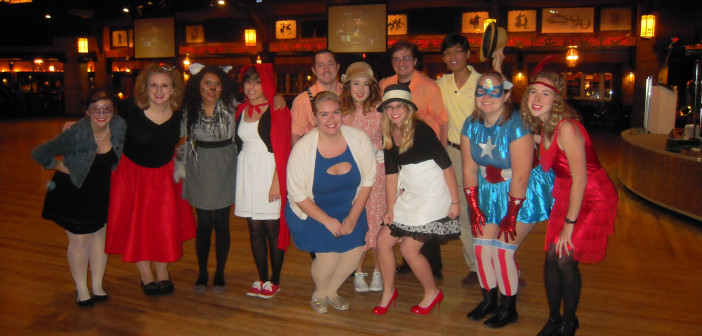Detailed preparation of budget proposals were underway around week eight by student run organizations as they organized for the winter term budget hearings.
Budget hearings tend to carry with them an air of intimidation surrounding the process of going before a panel of individuals to ask for needed funds for an organization. For most student run organizations, this process occurs once a term in preparation for their upcoming events in following terms. However, as a couple of student organizations explain, these hearings are not as terrifying as one might think.
Co-editors of the NC Review—the college’s literary magazine— seniors Mickey Richards and Deanna Sigeal share their first time budget hearing experience.
“It felt more casual than I thought it was going to be,” said Sigeal. “It seemed like a presentation in a normal class, which was good because it is really daunting to ask people for money.”
“One of the things I agonize over is how am I going to dress for something like that, because you would think that in that type of situation, that it would be a lot more formal, but some people were in t-shirts and jeans,” said Richards.
So how, does this process work?
Senior Logan LaRocque, the Student Governing Association’s (SGA) treasurer—an organization in which the Finance Committee, the panel that handles funding, is housed under—offers a look into this very process.
Every student on campus pays a $60 activity fee each term, LaRocque explained. That amount multiplied by the number of students currently at North Central gives the working amount of funds used to aid student organizations. There are various categories that student run organizations fall under and those categories determine what type of budget hearing takes place. For example, “term-based” organizations, which are the general student organizations that account for about three quarters of organizations on campus, are allocated funds on a term-by-term basis—where as “year-based” would be given funds for the entire year, and a longer period to plan a proposal.
All budget hearings are set up in much the same way: Each organization must send a representative prepared with a detailed budget proposal that outlines all events the organization has planed for the next term and how much they think it would cost. Things such as if the event is open to the general student body or if its just for organization members, and what creative ideas for either promoting the event or promoting themselves are also taken into consideration and discussed along side the financial aspect. And then appropriate funding is handed out.
“There’s this whole atmosphere surrounding it (budget hearings), that it’s this terrifying thing, and that you run the risk of not getting everything that you need,” commented Emily Johnson ’16, president of Celluloide—the college’s film club, “…but I’m a part of a relatively small one (organization), so it wasn’t as much of a problem getting what we needed. I think they have a good system in the sense that they are really supportive of even the smallest of student organization; they’re not judgmental or overbearing about who they give money to, or don’t give money to.”
“We try to be very open about budgets and how we cut them or change them,” says LaRocque. “There are just certain areas, he explained, that cannot be completely funded, or are not funded at all, and this is where fundraising can be utilized.”
In regards to organizations receiving either all of their proposed funds or close to it, one aspect that is highly emphasized is details, details, details.
“Be as detailed as possible,” encouraged LaRocque. “If you just come in and say ‘oh we need $100 for pizza and it’s going to be sometime during week seven,’ we don’t know if there is really that much planning yet, and that’s something we want to see, because we feel that’s what makes programs successful.”
As the winter term budget hearings come to a close, LaRocque gave a final statement about Finance Committee as a group. “As a whole we’ve (Finance Committee) heard in the past that it (budget hearings) can be intimidating, and I think we have really tired to change that…I think we’ve made great strides in being more open and welcoming when people are presenting budgets. Don’t be afraid.”

